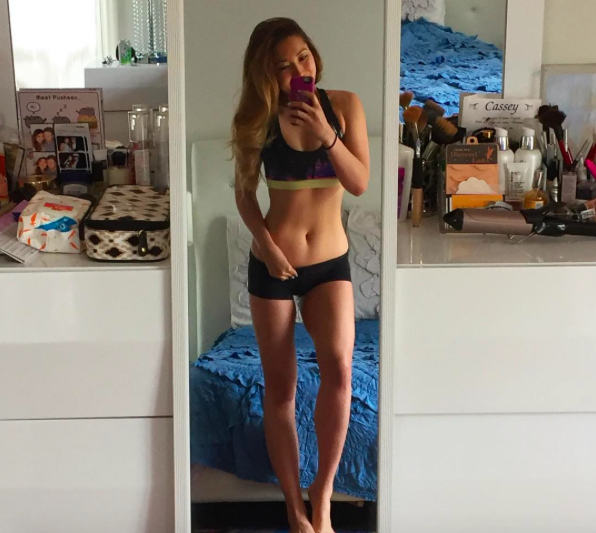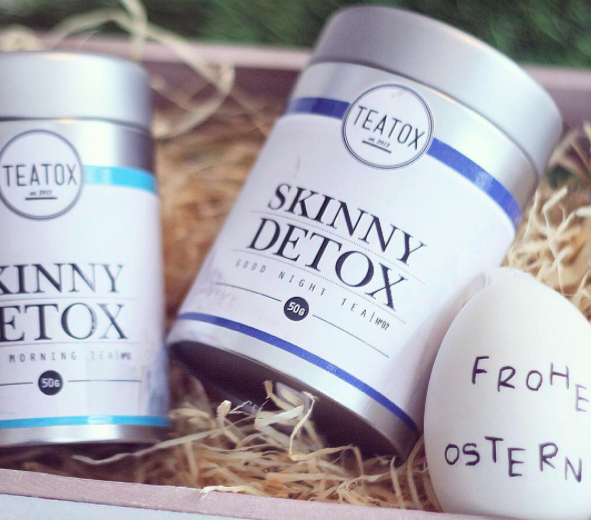T-minus several months to summer, and the pressure is on. Looking good in a swimsuit is the priority on everybody’s mind, and if you’ve been going to the gym, the crowdedness is a true testament to that. As May/June hovers closer, the treadmills will be impossible to get on during peak hours and pilates classes will become full (whereas in November it was pret-ty easy to snag a prime spot).
We feel you. And, in college, you’re definitely not your high school self anymore. Gone are the days where your mom replaces your mac and cheese bowl with a salad. Now, you’re in control (aka you’re the captain now!) and that’s pretty daunting. So how do you keep yourself on task and refuse those yummy brownies your roomie just made?
You turn to Instagram. Honestly, I love Instagram. It’s the one social media app where you can put your best self forward. No fugly photos tagged of you from your friends, no weird inside jokes posted to your wall… Basically everyone can think you’re hot and normal for once, right? (Yes.)

GIF courtesy of giphy.com
But Instagram is now more and more used as a vehicle for inspiration, too. Fashion lovers follow their favorite designers and get to see new clothes as they hit the runway, foodies follow other foodies for new recipe ideas and tips, and fitness lovers can get the #fitspo they may need to get to the gym or to refuse that extra cookie. You get the gist. It’s awesome, and it’s really great people are able to feed off each other in positive ways through this app, but it can also have a dark side.
My mom always told me to take everything in moderation. Some (and we’re not claiming all, by far) “famous” fitness Instagrams go way past moderation. Famous fitspo’s like Jen Selter, who founded the term “seltering,” aka the idea of sticking your butt out in mimic of Selter’s butt, or Cassey Ho of Blogilates may not always advocate the safest ways to get fit. With a little research, it’s pretty easy to dissect where their “diet” plans go wrong, however, many will simply look at their amount of followers and assume anyone with a following that large is right.

Photo courtesy of @blogilates on Instagram
Coming off of ten years of competitive swimming at a national level, I’ve been used to eating upwards of 5,000 calories per day to supplement anywhere from four to six hours of training on any given day. It’s a lot of food — more than twice over recommended for the average woman, but typically, women who don’t exercise are recommended to eat 2,000 calories a day. (So basically, anyone who exercises at all needs more than that to healthily function.) Then I read Ho’s training plan, where she recommends a 1,300 calorie diet on an hour of exercise, I was shocked.
That’s starvation. Ho doesn’t maintain her body shape because she’s exercising and eating healthily, she maintains it because she’s advocating starvation. I’m not saying her ideas, such as doing pilates, are bad at all. In fact, if you wanted to follow her fitness routine but ignore her eating plan, you’d probably be fine.
On top of that, an obsession with fitness Instagrams may bring about harmful ideas. Common hashtags including #skinny, or #thighgap (a trend that luckily has seemed to relatively blow over) are physically dangerous. Thigh gaps are only created if a) you are so unhealthily skinny you have lost almost all fat in your body, or b) you have been blessed by genetics and your hips are just naturally that way. There’s no in-between. There’s also trends that are just plain dumb (seriously!) like the ridiculous detox tea trend in which celebrities are all raving about. Trust me when I say you shouldn’t take Scott Disick’s word for it. The only reason anyone is looking skinnier is because it’s full of laxatives (yuck).

Photo courtesy of @teatox on Instagram
In a perfect world, everybody who is looking for nutrition advice should go to a licensed nutritionist. There’s a reason why people go to school for it. Your favorite athletes and world famous models all do — and they are likely on strict regiments that keep them fit and healthy. But every nutrition plan is different for every person, and they can’t come in a “one size fits all” container. Of course, if your career doesn’t mandate you to look good, there’s probably no need to shell out that sort of money, but it’s probably a good idea to take all your favorite fitness Instagrams and #fitspo with a very, very big grain of salt.


